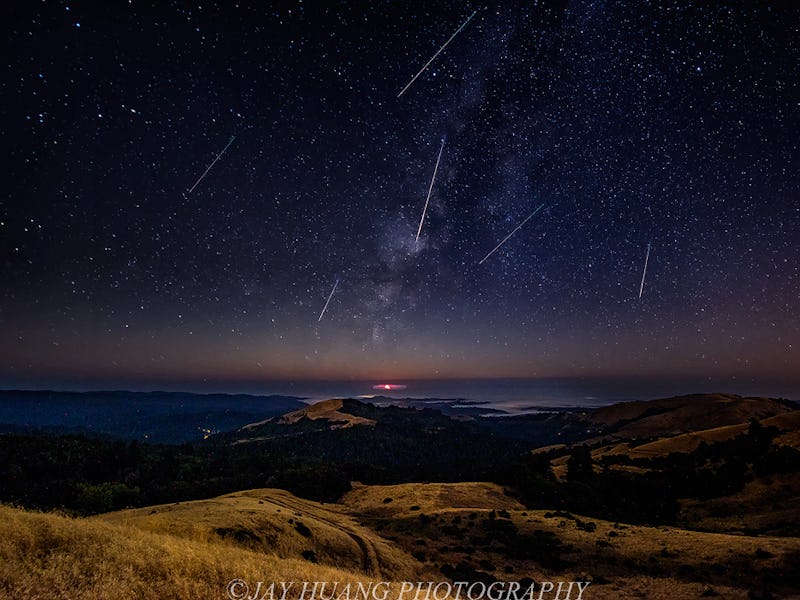People May Be Able to Buy 'Meteor Showers on Demand' Soon, But It'll Cost You
Impress your friends with a cosmic show.

In a few days, China’s unmanned space station, Tiangong-1, will fall to Earth causing a light show as it burns up in the atmosphere. A Japanese company has plans to make a similar fiery display available on demand — for those who have the money for it.
Astro Live Experiences (ALE) plans to launch two microsatellites filled with star pellets into space as part of the Sky Canvas project. Once in orbit, the satellite will release more than a dozen pellets to create an artificial meteor shower as they catch fire in the atmosphere. The company said it could be done anywhere on Earth and viewable in an area of approximately 125 miles in diameter during the evening hours when the light show could be easily seen. The service will be available to anyone as long as they pay for it. In order to make this cosmic entertainment happen the satellites will have to stay in low orbit, which is causing some concern.
“I salute them for cleverness and for their technical expertise, but from an orbital debris standpoint, it’s not a great idea,” University of Michigan astronomer Patrick Seitzer said to BuzzFeed News. “I’m concerned space will be getting crowded in low-earth orbit in the next 10 years.”
ALE’s satellites will stay below 250-mile altitude in order to avoid collisions with other satellites. There are 40 satellites orbiting below 220 miles, and the company will check multiples times whether their artificial meteor shower will collide with any other satellites. On its website, the company states that the satellites will also collect data used to help project when satellites and other objects re-enter the atmosphere, which could be used to deal with space debris.
The Japan Aerospace Exploration Agency already approved ALE’s Sky Canvas project. The first satellite will go up in December, and the company plans for three sets of larger six-satellite constellations in the future. It has yet to put a price tag the cosmic show.
Originally planned for the Tokyo 2020 Summer Olympics, ALE’s first light show is scheduled for spring 2020 and called the “Shooting Star challenge”.